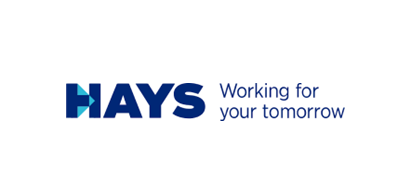- Over four in five (84%) employees in Scotland who work in a hybrid way say it has had a positive impact on their wellbeing
- Almost half (43%) of workers say recent news stories about return-to-office (RTO) mandates have negatively affected their wellbeing
- Over half (58%) of workers say financial concerns would impact their willingness to return to the office more frequently
The tug of war between ongoing hybrid working and return-to-office (RTO) mandates has caused much tension across the world of work in recent months, but what toll is this having on employee wellbeing in Scotland?
According to new research released by Hays, based on a survey of over 3,600 respondents across the UK, including over 200 responses in Scotland, most (84%) professionals who currently work in a hybrid way say it has positively impacted their overall wellbeing, including their mental, physical, social and financial wellbeing.
The research finds that, across the UK, more women (87%) than men (80%) believe hybrid working has improved their wellbeing. Currently 71% of employers in Scotland invest in flexible working arrangements to support their team’s wellbeing, the main approach employers take to boost employee wellbeing.
The main worry around returning to the office is the added cost of doing so, as 58% of employees in Scotland say financial concerns would impact their willingness to work from the office more regularly.
Keith Mason, director at Hays Scotland, comments: “Our research shows that 43% of workers in Scotland say recent new stories about employers asking staff to return to the office more regularly has had a negative knock-on effect on their wellbeing. These ‘scare stories’ (sometimes known as ‘scaries’) are mostly affecting younger workers aged between 20 and 29, more than the older age group of over 50s across the UK.
“But it’s not just mental wellbeing, as the research shows that many are concerned about the added cost of returning to the office more regularly. It’s clear that the appeal of hybrid working shows no signs of disappearing any time soon and employers need to be aware of how flexible working patterns play a role in wellbeing and, indeed, productivity.”
Mason explains that hybrid working can give people the autonomy to manage their workload in the best way that suits their individual needs as some people prefer to work on certain projects at home, whilst others thrive carrying out specific tasks face-to-face in a collaborative setting.
“Most employers believe that positive wellbeing is important to their overall success in building a workforce that is resilient, productive and loyal, and flexible working is the most common way that employers support this. At the end of the day, turning a blind eye to the impact of RTO on wellbeing, particularly financial wellbeing, could have a negative impact on the sustained success of their business.”

